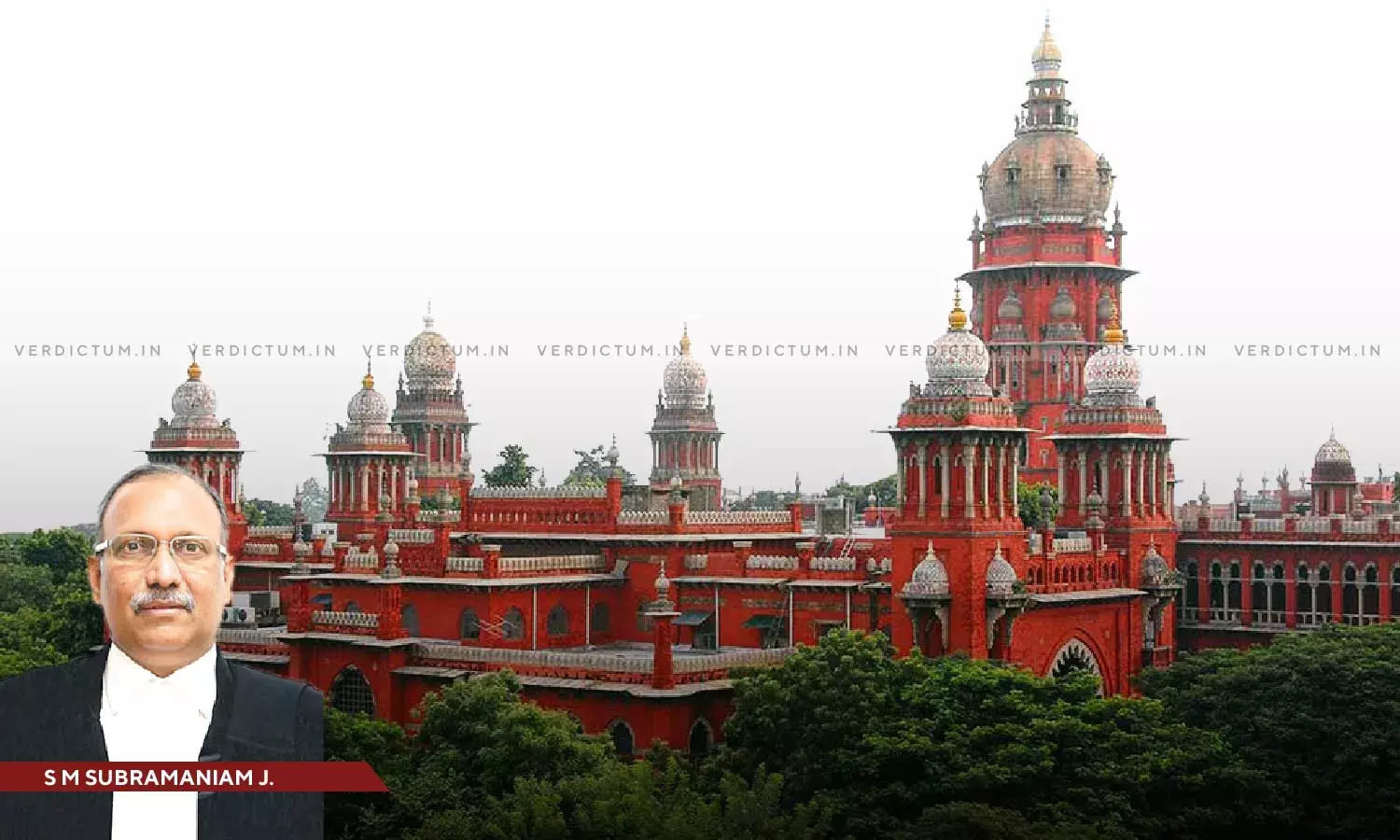Issuing Directions Indiscriminately For Speedy Disposal Of Cases Would Do No Justice- Madras HC

The Madras High Court said that the lower courts should regulate their own procedure in disposing of matters and High Courts could not issue directions to subordinate courts for speedy disposal of matters as a matter of routine unless there was a justification or acceptable reason for issuing any such directions..
The Bench of Justice S.M. Subramanian observed that “Every litigant approaching the Court of Law is waiting for justice and thus, it must be done in a consistent manner and without discriminating the litigants. Therefore issuing directions indiscriminately for speedy disposal of cases would do no service to the cause of justice. Every urgency cannot be considered for issuing a direction for speedy disposal, and the urgency, which is imminent alone to be considered.”
Advocate N. Suresh appeared for the petitioner.
In this case, the petitioner had approached the High Court and had sought for issuing of directions to the Principal Subordinate Judge for speedy disposal of a suit that was instituted seven years ago.
The petitioner had argued that his suit had remained pending for seven years mainly because of unnecessary adjournments granted by the local court of filmsy grounds.
The Court said that the Courts concerned had to dispose of the matters consistently by avoiding unnecessary adjournments, High Court cannot intervene in every matter pending before the lower courts.
“Adjournments are exceptions. Rule is to conduct the cases, whenever it is posted for hearing. No party can be allowed to take adjournment in a casual manner. Adjournments on genuine grounds are to be granted only by recording reason.” and mere length of time for which the case had remained pending was not the criteria for issuing direction for expeditious disposal of case, the Court further said.
The Court also noted that frivolous interlocutory applications were filed to prolong or protract the proceedings and therefore, such applications were to be disposed of as expeditiously as possible and maximum cost should be imposed on parties filing such frivolous applications.
The Court further said that only those cases should be given priority wherein interest of public at large was involved or the litigants were able to establish genuine urgency for early disposal of the cases.
“The practice of giving preference to any litigation without any justification at all circumstances to be avoided. Every litigant approaching the Court of Law is waiting for justice and thus, it must be done in a consistent manner and without discriminating the litigants.” observed the Court.
Further the Court expressed its concern with regard to the situation wherein frequent directions were issued for speedy disposal and said that “Frequent directions if issued, would not provide a practical solution. Overburdening with litigations on Board is to be taken into consideration by the High Court. The routine directions for speedy disposal, if it is issued, it would further cause unnecessary pressure on the District Judiciary. In many such cases, wherein directions are issued, the District Judiciary has come out with administrative letters, seeking extension of time again and again and thus, the purpose for which such directions were issued by the High Court became defeated.”
Accordingly, the Revision Petition was disposed of.
Cause Title- S. Baby v. S. Sakkubai Ammal
Click here to read/download the Order

